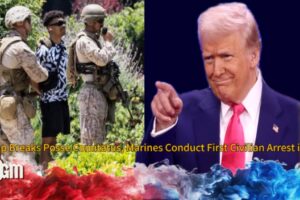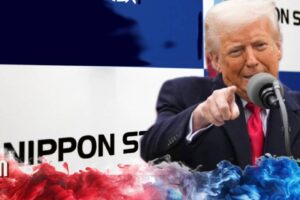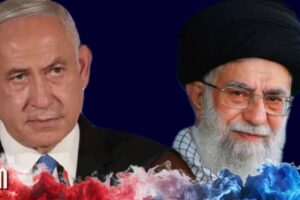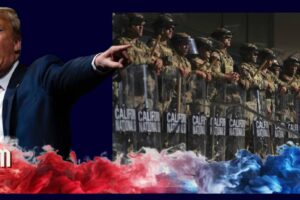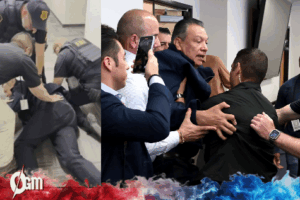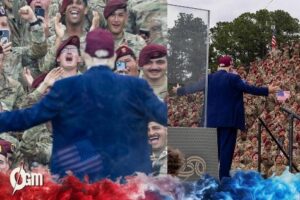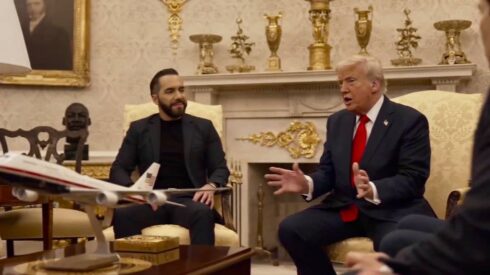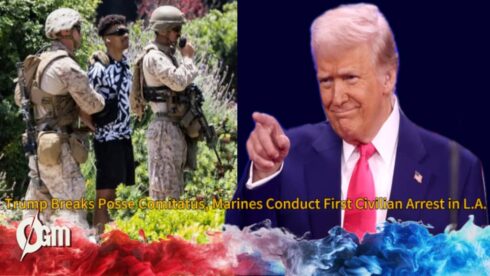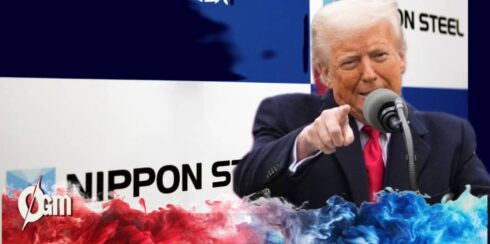El Salvador’s President Nayib Bukele has publicly refused to return Kilmar Abrego Garcia to the United States, igniting controversy over a deportation the U.S. government admits was a mistake. Speaking in the Oval Office alongside former President Donald Trump and Attorney General Pam Bondi, Bukele dismissed the idea of handing Garcia back to U.S. authorities, stating bluntly, “How can I return him to the United States? I smuggle him into the United States or what do I do? Of course, I’m not going to do it. The question is preposterous.”
Garcia, a Maryland resident, was deported during a mass transfer of individuals the Trump administration labeled as members of transnational gangs like MS-13 and Tren de Aragua. However, U.S. officials later acknowledged that his deportation to a high-security prison in El Salvador was an “administrative error.” Despite the U.S. Supreme Court ordering that the government facilitate his release, Bukele has insisted that Abrego Garcia remains in El Salvador under its sovereign jurisdiction.
Legal and Diplomatic Deadlock
Attorney General Pam Bondi maintained that the U.S. has done its part legally and diplomatically. “It’s up to El Salvador if they want to return him,” she told reporters. “First and foremost, he was illegally in our country… The Supreme Court ruled, President, that if El Salvador wants to return him, we would facilitate it, meaning provide a plane.”
However, the Supreme Court’s ruling did not address whether El Salvador must cooperate—only that the Trump administration must assist in facilitating Garcia’s release if El Salvador agrees. This legal ambiguity leaves the issue at a stalemate, with Garcia’s fate resting solely in the hands of Bukele’s administration.
Accusations and Human Rights Concerns
Bukele referred to Abrego Garcia as a “terrorist,” despite no evidence of criminal activity. Garcia’s attorneys have strongly refuted this label, asserting that he has no affiliation with MS-13 or any gang and has never faced criminal charges in either the U.S. or El Salvador. Michael G. Kozak, a senior State Department official, confirmed in court documents that Garcia is currently held at the Terrorism Confinement Center in El Salvador, stating that he is “alive and secure” but offering no indication of plans for his release.
Human rights advocates have expressed concern over Garcia’s detention without trial or formal charges, calling it a violation of international law and due process. His wife and children in Maryland continue to campaign for his return, highlighting the emotional and legal turmoil wrought by the deportation blunder.
Trump and Bukele Discuss Expanded Criminal Transfers
In an unexpected pivot during the Oval Office meeting, Trump floated the idea of sending U.S. citizens convicted of violent crimes to prisons in El Salvador. “If it’s a homegrown criminal, I have no problem,” he said. “We’re studying the laws right now… If we can do that, that’s good.” He emphasized the potential cost savings and effectiveness of rehabilitation abroad, a notion that alarmed legal experts.
Constitutional scholars were quick to raise red flags. Under the 1936 Supreme Court case Valentine v. United States, a sitting U.S. president cannot extradite American citizens to foreign nations without Congressional approval. Any attempt to do so could spark a legal crisis and major diplomatic rift.
A Symbol of Sovereignty and Solidarity Against Crime
President Bukele, known for his aggressive crackdown on gang violence in El Salvador, used the moment to assert his nation’s sovereignty. “I don’t have the power to return him to the United States,” Bukele said. “He is detained pursuant to the sovereign, domestic authority of El Salvador.”
Bukele praised Trump’s border control policies and expressed eagerness to support U.S. efforts to combat crime and terrorism. “We’re very eager to help,” Bukele said, calling it an “honor to be here.” Trump, in turn, celebrated El Salvador’s cooperation in housing what he termed “some of the most violent alien enemies of the World.”
In a Truth Social post, Trump further hailed Bukele’s role, writing that “these barbarians are now in the sole custody of El Salvador, a proud and sovereign Nation, and their future is up to President B and his Government.” As both leaders align on crime policy, Kilmar Abrego Garcia remains a high-profile symbol of the complex, and often controversial, intersection between immigration enforcement and international diplomacy.


